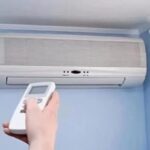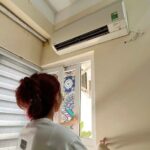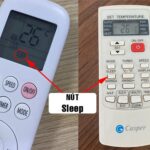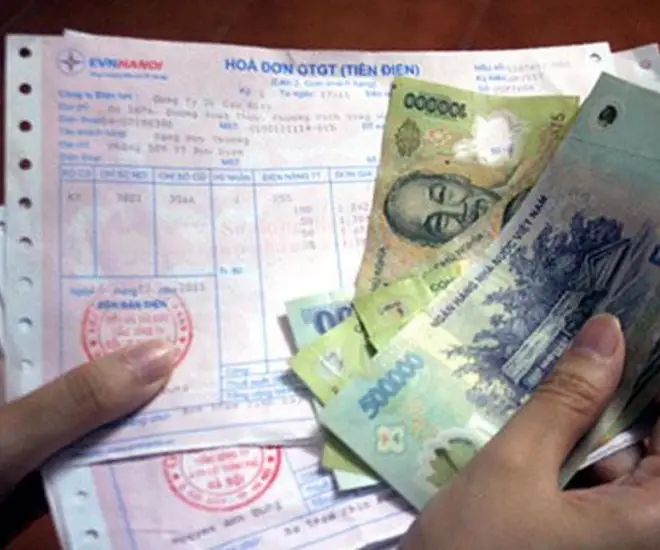
Electricity bills in May saw a significant surge due to a combination of factors, leaving many consumers bewildered.
Unraveling the May Electricity Bill Conundrum
According to the Vietnam Electricity Group (EVN), the average retail electricity price officially increased from 2,103.11 VND to 2,204.07 VND per kWh (excluding VAT) starting May 10, representing a 4.8% hike. However, what has truly startled consumers is not just the price hike but the tiered progressive pricing structure, which means the more electricity one uses, the higher the cost.
Here’s the latest residential electricity price structure for 2025 (6 tiers), excluding VAT:
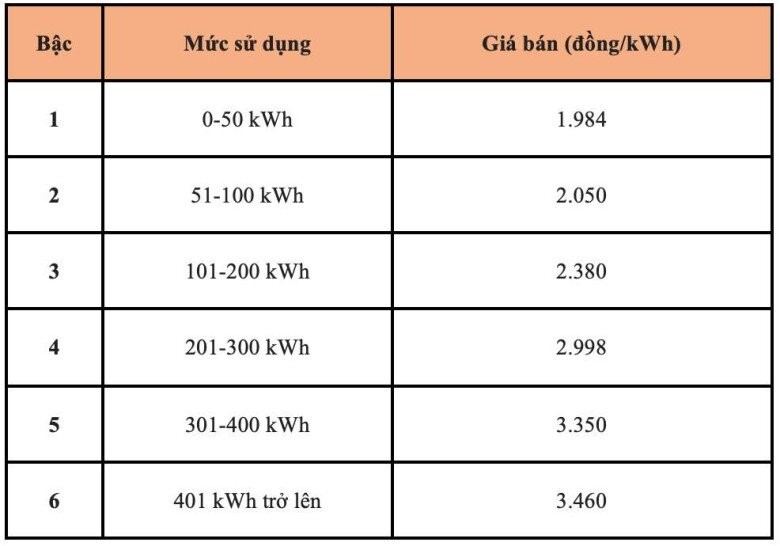
EVN attributed the surge in electricity bills primarily to prolonged hot weather, which led to increased usage of air conditioners, fans, refrigerators, and other cooling appliances. Many northern and central provinces experienced average temperatures surpassing 37°C in May, resulting in continuous operation of cooling equipment.
Decoding the New Pricing Structure
Using the above price structure as a reference, let’s break down the cost for a household that consumed 350 kWh of electricity in May. The first 50 kWh would be charged at 1,984 VND, the next 50 kWh at 2,050 VND, the subsequent 100 kWh at 2,380 VND, the next 100 kWh at 2,701 VND, and the final 50 kWh at 2,878 VND.
Here’s the calculation:
Tier 1 (50 kWh) = 50 × 1,984 = 99,200 VND
Tier 2 (50 kWh) = 50 × 2,082 = 104,100 VND
Tier 3 (100 kWh) = 100 × 2,280 = 228,000 VND
Tier 4 (100 kWh) = 100 × 2,701 = 270,100 VND
Tier 5 (50 kWh) = 50 × 2,878 = 143,900 VND
Total cost (excluding VAT): 99,200 + 104,100 + 228,000 + 270,100 + 143,900 = 845,300 VND
Add 10% VAT: 845,300 × 10% = 84,530 VND
Total cost (including VAT): 845,300 + 84,530 = 929,830 VND
Conclusion: For a household consuming 350 kWh per month, the electricity bill (including VAT) would amount to 929,830 VND.

Strategies to Curb Summer Electricity Bills
As hot weather peaks and electricity prices soar with the tiered pricing structure, managing electricity consumption becomes a top priority for many households. Energy experts suggest that by adjusting usage habits and adopting a few simple tips, consumers can significantly reduce their monthly electricity expenses.
– Smart Air Conditioning
Air conditioners are often the biggest culprits behind soaring summer electricity bills. However, instead of completely avoiding their use, it’s about using them wisely. Experts recommend maintaining a temperature setting between 26–28 degrees Celsius and combining it with a fan to circulate the cool air more efficiently without cranking up the power.
Additionally, regular cleaning of the air filters will ensure smooth operation and reduce energy consumption. Avoid frequent on/off cycles, and minimize opening doors when the air conditioner is running to prevent cold air from escaping.
– Refrigerator Efficiency Tips
Running 24/7, refrigerators are the second biggest energy consumers in the home. To save energy, avoid overstuffing the fridge, and maintain adequate airflow space. Minimize opening the door to prevent heat from entering and cold air from escaping.
Also, check the door gasket regularly to ensure a tight seal. Place the refrigerator in a well-ventilated area, maintaining a distance of at least 10 cm from the wall for better heat dissipation.

– Efficient Laundry Practices
Washing machines can be energy and water guzzlers if not used judiciously. Consumers are advised to wait until they have a full load before running the machine and to select energy-saving or water-saving modes, if available. If using a dryer, opt for natural drying during the day to save energy.
– Lighting Habits
One of the most effective tips is to switch to LED bulbs, which consume significantly less electricity compared to incandescent or compact fluorescent lamps.
Remember to turn off the lights when leaving a room and unplug appliances when not in use to prevent electricity leakage or standby power consumption.
– Take Control with Smart Monitoring
For larger families or those with multiple appliances, consider installing sub-meters for specific groups of devices (such as air conditioners, induction cookers, water heaters, etc.) to pinpoint the exact sources of high electricity consumption. This knowledge will empower you to make necessary adjustments and save energy.
In summary, it’s not about sacrificing comfort but about using electricity wisely. By making a few simple changes to your daily habits, every family can significantly reduce their electricity bills.
Why You Should Avoid Setting Your AC to 26 Degrees Celsius at Night
“Turning on the air conditioner at 26 degrees Celsius while sleeping can be tempting, but experts advise against it. This seemingly harmless habit may have negative consequences for your health and well-being, and understanding the reasons behind this recommendation is crucial for a good night’s rest.”
























